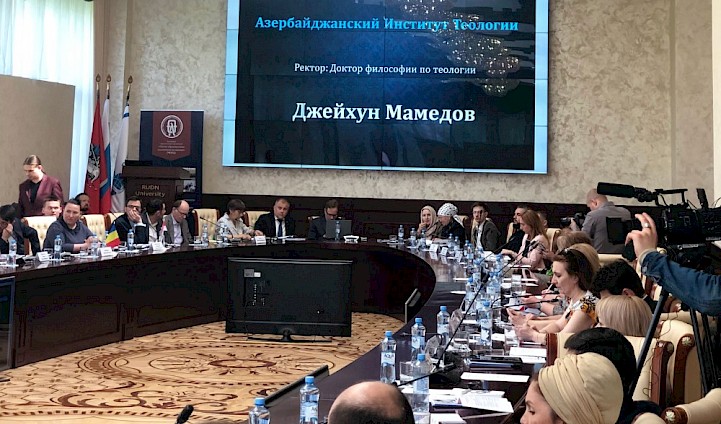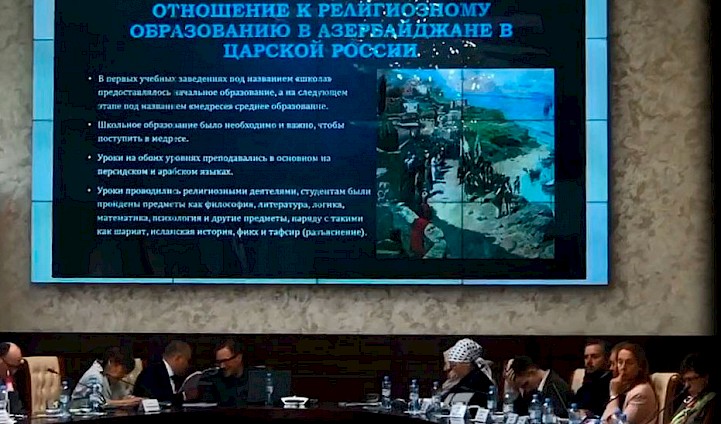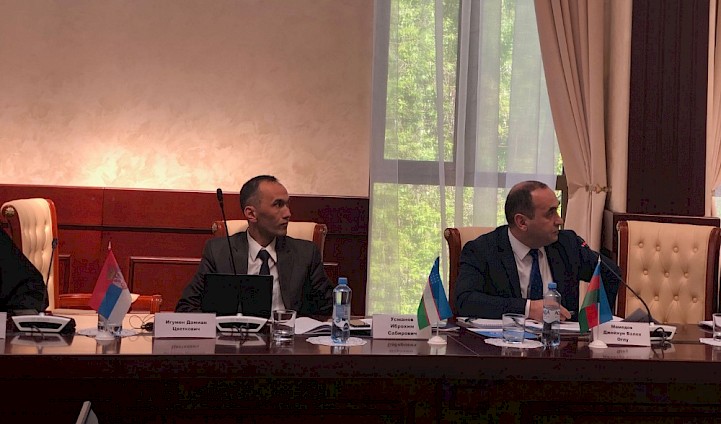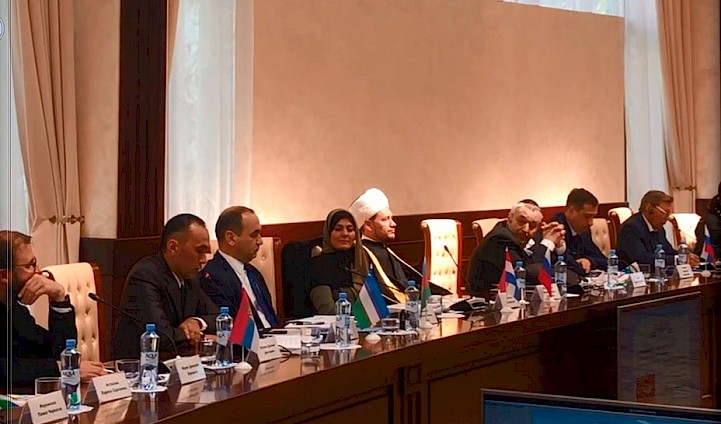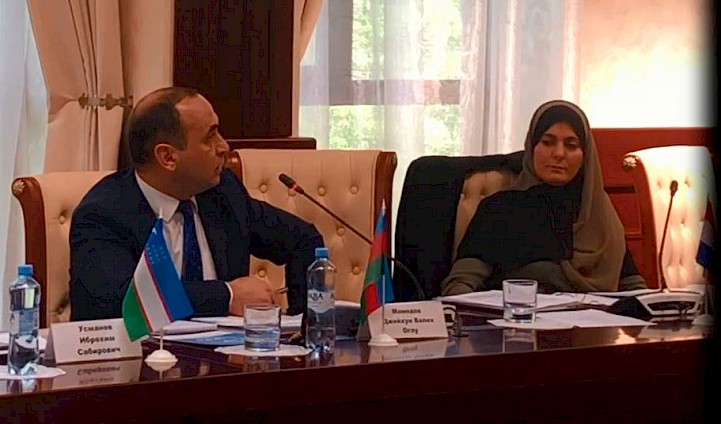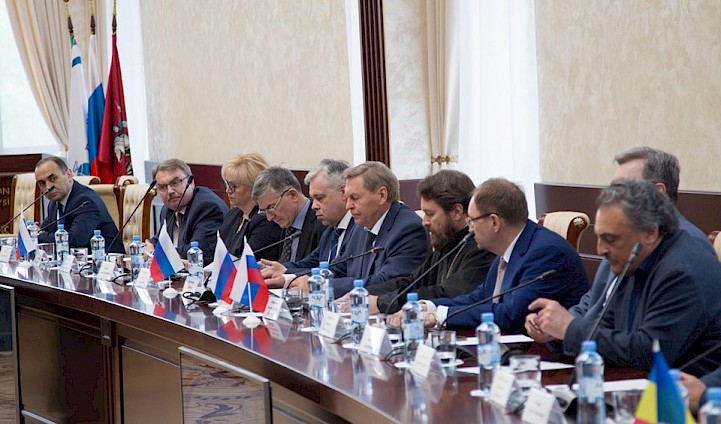AIT rector attends international symposium
On May 20-21, 2019, Jeyhun Mammadov, Rector of Azerbaijan Institute of Theology, attended the International Symposium on Theology in the Modern Educational and Scientific Space held at the Peoples' Friendship University of Russia. Jeyhun Mammadov delivered a speech on Religious Education in Azerbaijan: Realities and Prospects. Touching upon the history of religious education in Azerbaijan, Mr. Mammadov mentioned the activities of madrasas, scholars’ contribution to Islamic culture and state care to religious education in the country. As in many Muslim countries, religious education was established in Azerbaijan in the early years of the spread of Islam. This was due to the high value of Islam to science and knowledge.
Mentioning state-religion relations in Azerbaijan, Jeyhun Mammadov said after Heydar Aliyev returned to the power, state care for this field increased. He emphasized that being a worhty follower of Heydar Aliyev’s policy, President Ilham Aliyev continues this mission with great farsightedness. “Azerbaijan Institute of Theology was established thanks to the attention and care of President Ilham Aliyev,” said Jeyhun Mammadov.
Rector Jeyhun Mammadov mentioned history of AIT, its activity directions, teaching process and international relations. He stressed that the Institute attaches particular importance to the study of international experience and mutual exchange. To that end, the curricula of Muslim and non-Muslim states are studied and relations with the world universities are established.
AIT rector delivered a lecture on History of Religions in Azerbaijan for the students of Humanities and Social Sciences faculty at the Peoples' Friendship University of Russia in Moscow. He mentioned numerous ethnic and religious groups living in Azerbaijan at different times, existing multicultural and tolerant atmosphere. He said despite being a Muslim-majority country, people belonging to different religions live in a mutual understanding and tolerant atmosphere.
National-cultural diversity and ethnic-religious tolerant atmosphere in the country has created a unique place for intercultural dialogue. Speaking about the state-religion relations and care for this sphere, the rector emphasized the rapid increase in the number of religious places, mosques, churches and synagogues during the years of independence. These facts are clear examples of the special attention for the regulation of state-religion relations and the freedom of all religions in the country.
